In this article
If you’re concerned and find yourself wondering, “Does my baby have autism?” there are ways to determine whether or not your baby needs further testing.
The Center for Disease Control and Prevention (CDC) estimates that in 2018, 1 in 44 children were been diagnosed with Autism Spectrum Disorder (ASD). Due to the consistent rise in diagnoses over the years – the estimate was 1 in 88 diagnosed with ASD in 2012 — it’s now more important than ever for parents to be on the lookout for signs of developmental delay.
While there are no exact causes of autism — which is not typically diagnosed until a child is 2 years old — risk factors usually fall under one of two categories: genetic or environmental.
Genetic mutations, or disorders like fragile X syndrome or Rett Syndrome, are not direct causes of ASD, but can be contributing factors. Environmental factors like advanced maternal age, prematurity, giving birth to multiples or pregnancy complications could also contribute to ASD. Neurodivergence can result in varying degrees of social, communication and behavorial difficulties.
While the following early autism symptoms — when presented individually — do not indicate autism, you may want to make your child’s pediatrician aware at their next well-baby visit to determine whether further testing is warranted.
Infrequent smiling could be a sign of autism in baby
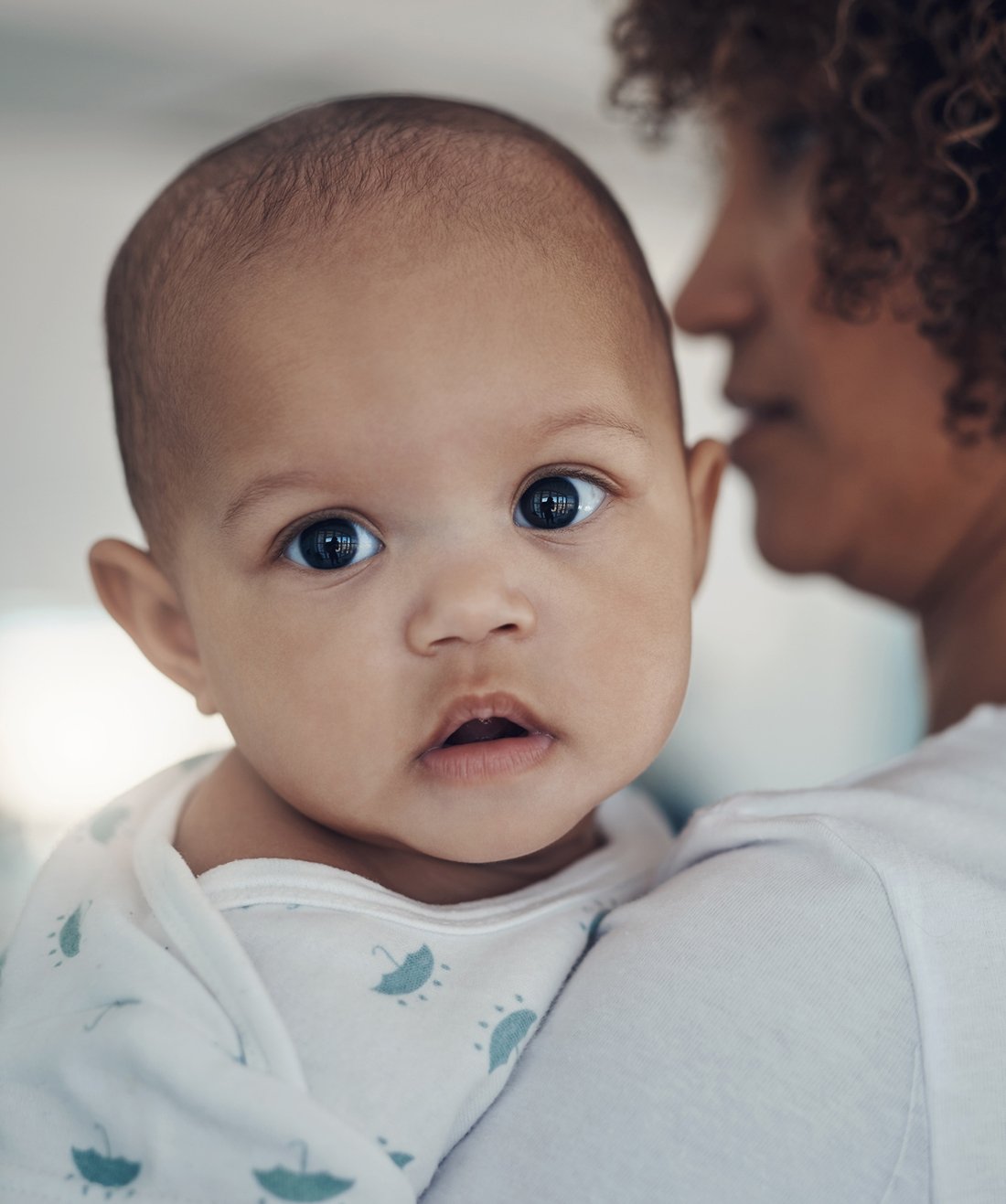
Babies love to smile, especially when they’re smiled at from caregivers. If you notice that your baby rarely smiles back at 3 months, this could be a sign of developmental delay. An easy test for this is to engage in a game of peek-a-boo with your little one. If your child consistently fails to react to this test of object permanence, it may indicate that further screening is required.
Possible autism symptoms: Your baby doesn't laugh or giggle
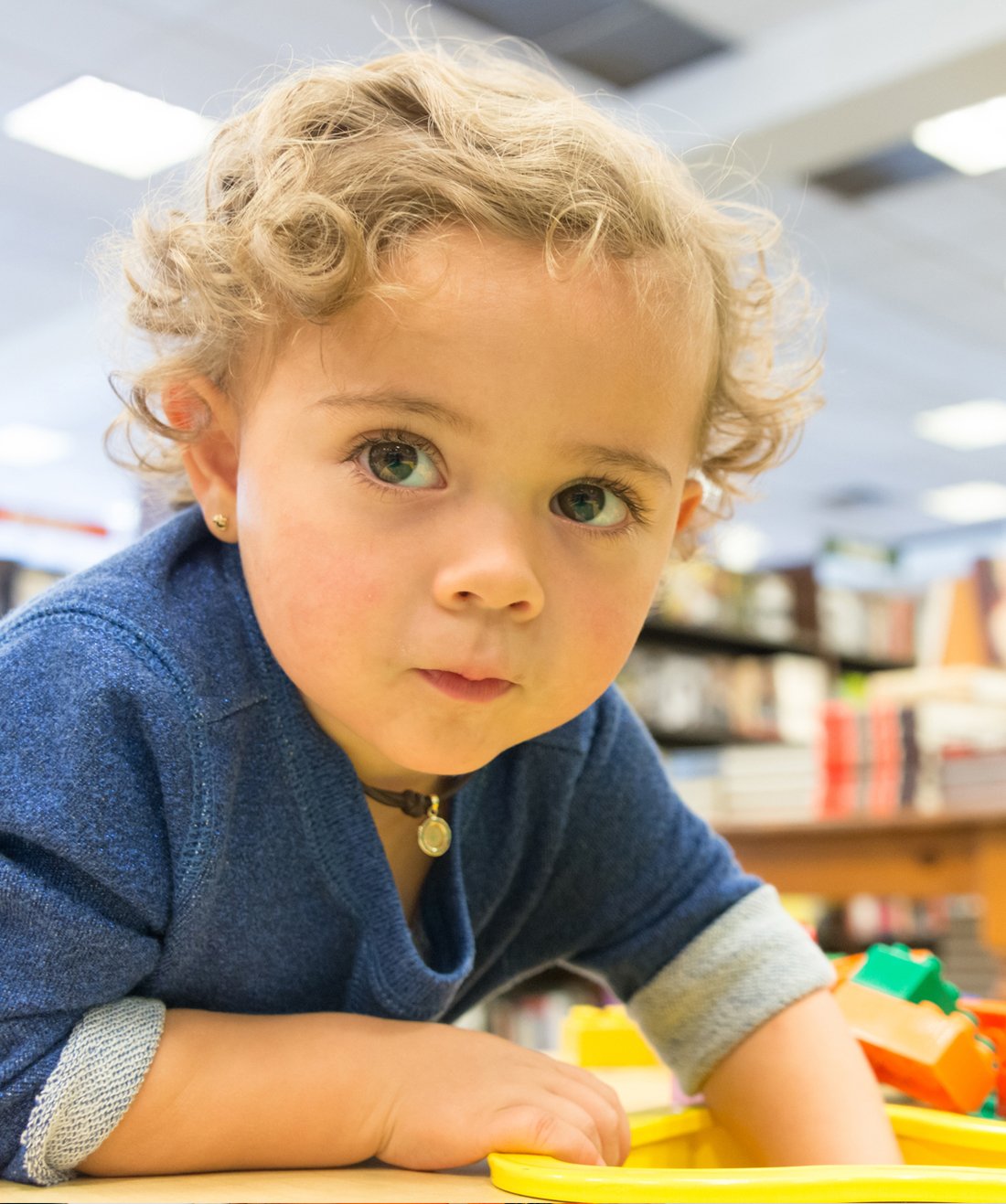
If you notice that your baby doesn’t laugh, make joyful expressions or begin to imitate your sounds by 6 months, you will want to alert your pediatrician.
Child exhibits lack of eye contact

Most babies love to stare at mom and dad and other loved ones. However, most children with autism fail to do so. If you notice that it is difficult to get your baby to engage from 6 months on, you should alert your pediatrician.
Not babbling: One of the signs of autism in 9 month old

There’s nothing cuter than baby babble. At 9 months old, a healthy baby should be exhibiting frequent babble or repeating syllables.
“Babbling refers to the sounds that babies make before they start to talk. As children get older, babbling becomes more sophisticated,” Speech-Language Pathologist Kay McGill of
The Hanen Centre explained. “It can be scary if you think your child is showing signs of autism but early intervention is key for best outcomes. So, if you are seeing any signs, speak to a doctor, therapist, or your speech-language pathologist.”
While a speech pathologist cannot diagnose autism, they are trained to recognize symptoms that indicate your baby may have autism.
Is your baby not responding to their name?
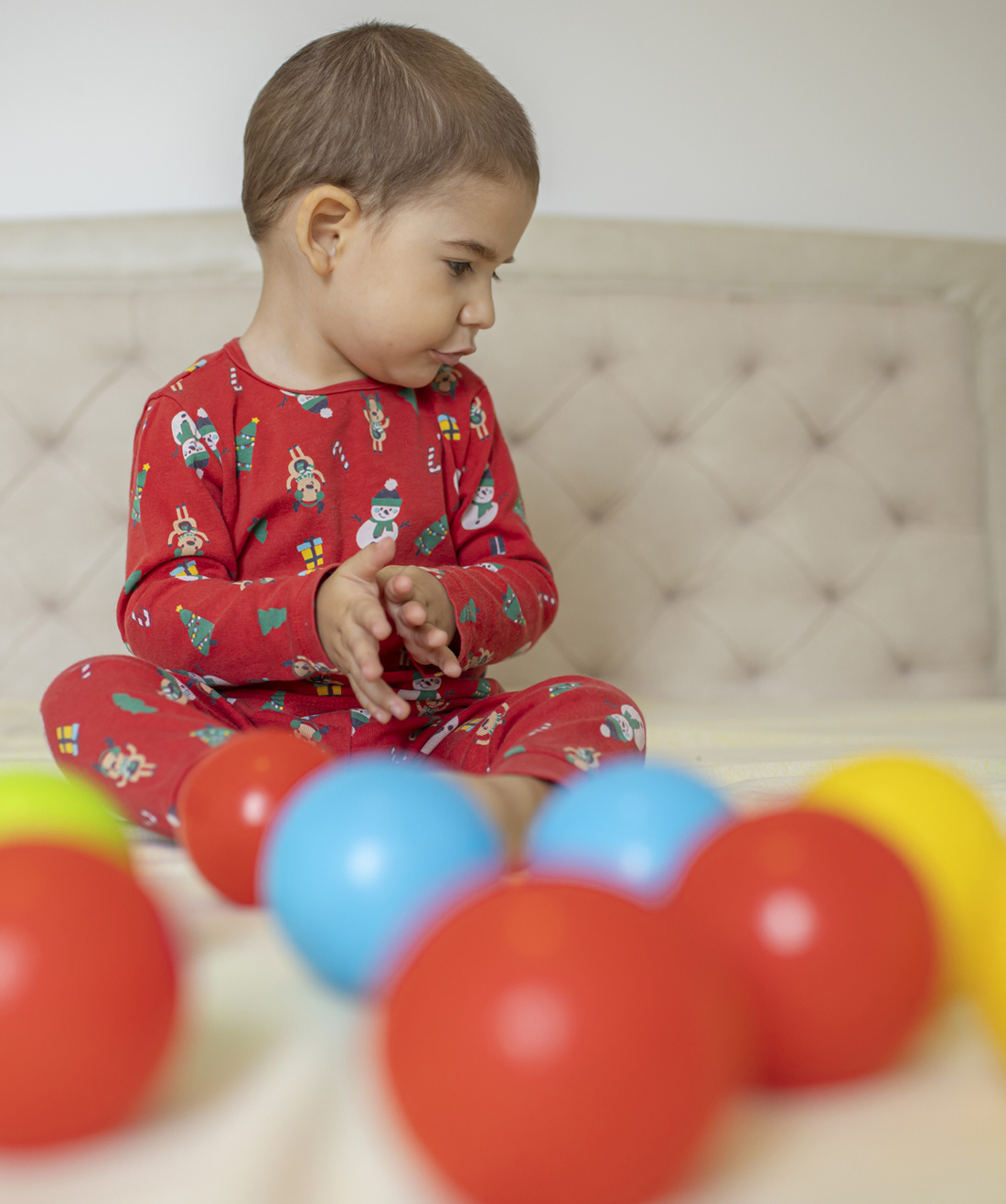
Between 6 to 12 months, it is common for babies to begin to respond on a more frequent basis to their name. If your child does not acknowledge his name by the time he is 1 year old, you should take note and call your doctor.
Missing developmental milestones like not communicating through gestures
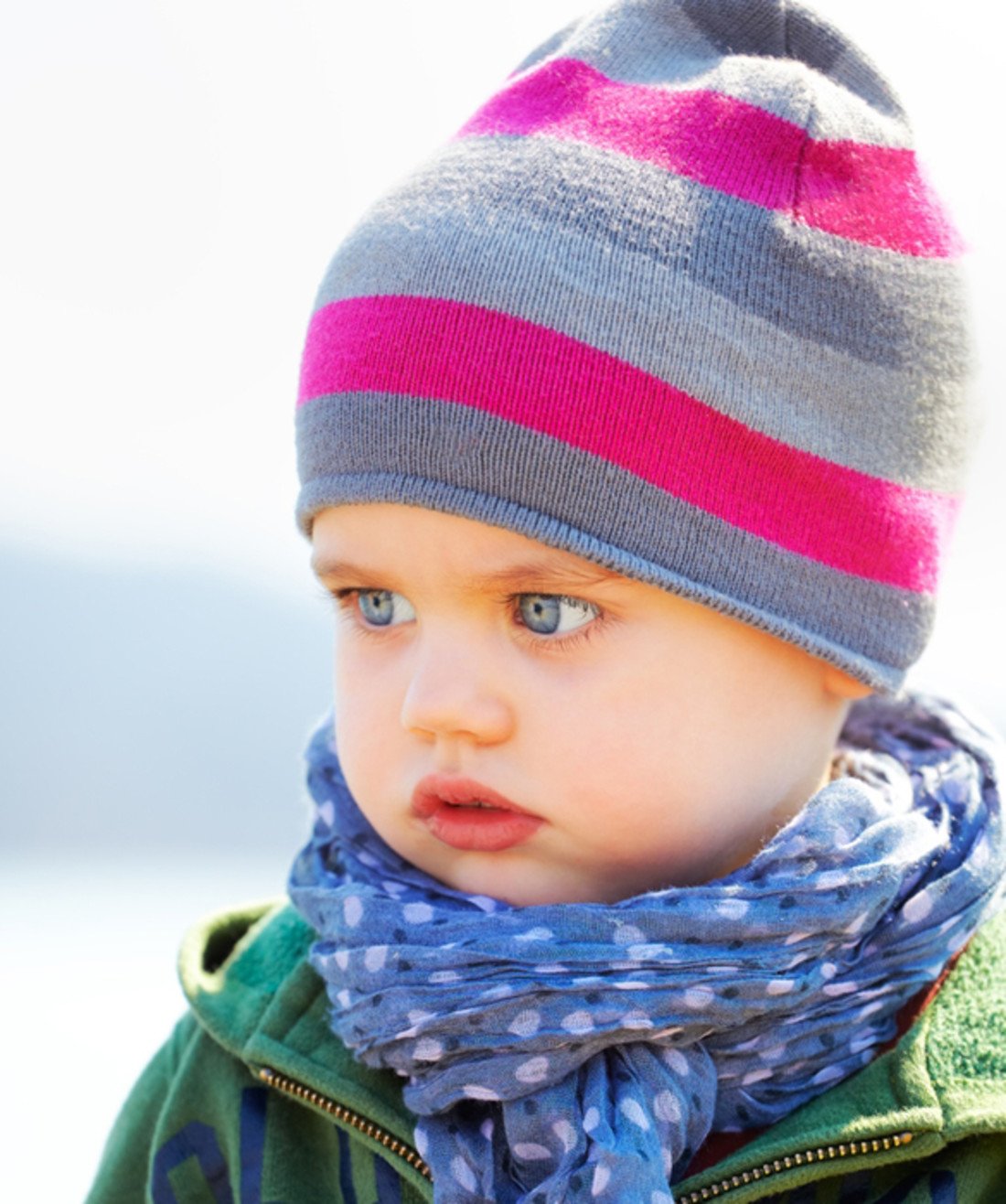
Throughout your baby’s young life they’re growing, developing and changing quickly. There are several key milestones that most babies reach within their first few months of life and it is these milestones that help professionals gauge a baby’s development and health.
Keeping these developmental milestones in mind when interacting with your baby, with the understanding that all children develop at their own pace and there are no strict guidelines, may help you recognize areas of concern you may want to address with your child’s health care provider.
By 10 months, your baby should be communicating with you by waving, pointing, or reaching. Not gesturing could be indicative of a delay.
Fixation on certain toys

It’s easy and quite normal for a child to become fixated on one toy or object; fixation only becomes problematic when not having the item causes anxiety, agression or meltdowns.
When you first notice an intense interest or fixation, you can lean into this new item as a reinforcer to help with potentially challenging activities like potty training or eating vegetables.
However, if you notice that your child’s behavior changes negatively when going without the item, it may be time to begin rotating out toys to further test the situation. Should the negative behavior continue, a chat with your child’s pediatrician may be in order.
How to tell if my child is autistic: Is not speaking a sign?

While some children are delayed walkers or talkers, if your child has not said “mama” or “dada” or another word by 18 months, you should arrange for a screening. Your child could be exhibiting signs of sensory overload.
“I remember when my daughter was an early toddler — 18 months or so — she would have a meltdown each time we had a play date with our playgroup,” Carol R. told Mom.com. “The other parents would chuckle and say, ‘it’s not a full play date until Mel cries.'”
“As a first time parent I didn’t know what was going on, but I knew it wasn’t ‘normal,'” Carol continued. “Now I know she was experiencing sensory overload, but had no words to express it. Looking back this was one of many signs.”
Is your child exhibiting stimming behaviors?
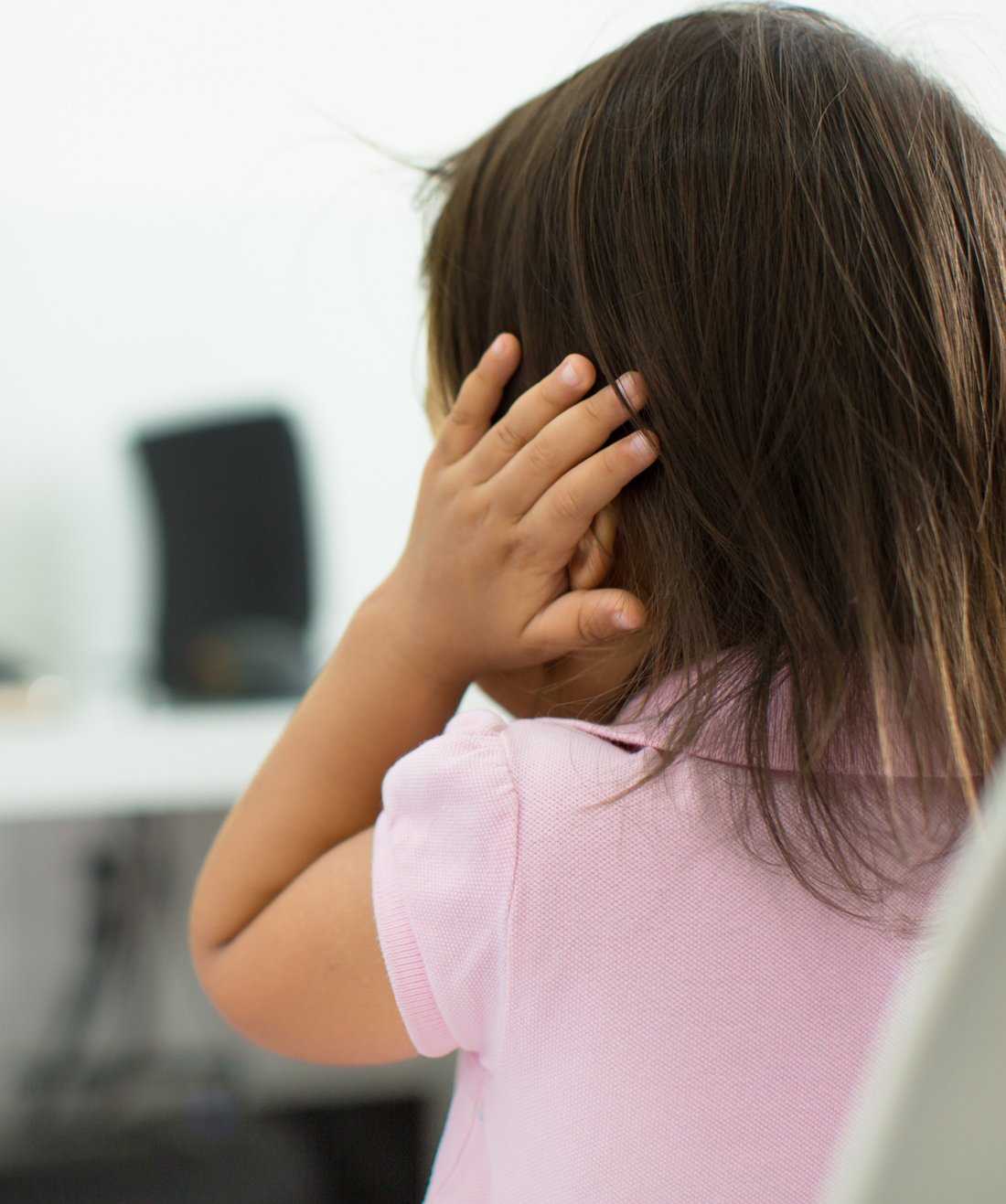
Children are sensory-seeking by nature, however nuerodivergent children may exhibit self-stimulating behaviors, known as stimming, which on its own is not cause for concern. Should the behaviors affect daily life or disrupt situations, steps may be made to address the behavior.
In a child with autism, stimming behavior can look like rocking back and forth, hand flapping, walking on tiptoes, bouncing, jumping, excessive blinking or a host of other movements.
Who can diagnose autism?

The American Academy of Pediatrics (APP) recommends screening your baby for autism during well visits; typically at 18 months and 24 months. Screenings can be completed by a variety of professionals in school and community health care facilities as well as, of course, by your child’s primary health care provider.
Overall, however, parents are the first to notice developmental delays or changes in behavior and according to the CDC, their suspicions are correct a large percentage of the time. So, bottom line, If you notice your baby or toddler regressing in developmental or language skills at any point, you should alert your pediatrician.
Is my child autistic? Quiz and checklist.
For children younger than 30 months, the Modified Checklist for Autism in Toddlers (M-CHAT) is a common screening tool performed by professionals looking to diagnose babies that have autism. Reviewing it may be a good place to start if you have concerns about your child’s development.





